Breast Reconstruction in Morocco
Search and Compare the Best Clinics and Doctors at the Lowest Prices for Breast Reconstruction in Morocco

Find the best clinics for Breast Reconstruction in Morocco
With Medijump you can browse 2 facilities offering Breast Reconstruction procedures in Morocco. The cheapest price available is $3,057 in Casablanca. And for the cheapest price globally, prices start from $477 in India.
Breast Reconstruction in Casablanca
Price: $ 3,057
India offers the best prices Worldwide
Price: $ 477
From 13 verified reviews
Montse Alconchel Ruiz, 25 March 2020
I need you to send me your email, I was in the hospital last Saturday March 7 doing some tests and I have lost the medical report they gave me, I have tried to call them by phone several times but there is no way. my email [email protected] my name Montserrat AlconchelAdmission number 200308164407WK-001
From 23 verified reviews
Zineb Solaihi, 22 November 2019
Clean clinic very lovely staff
- Home
- Morocco
Compare Before & After Photos of _procedure_photos.phpBreast Reconstruction
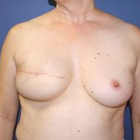
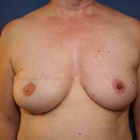
Front view
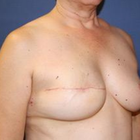
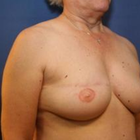
Half-side view
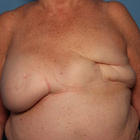
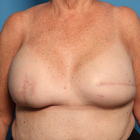
Front view
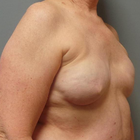
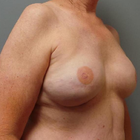
Half-side view
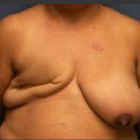
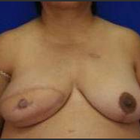
Front view
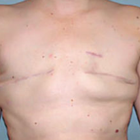
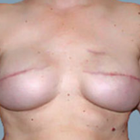
Front view
WHY US?
At Medijump, we're making medical easy. You can search, compare, discuss, and book your medical all in one place. We open the door to the best medical providers worldwide, saving you time and energy along the way, and it's all for FREE, no hidden fees, and no price markups guaranteed. So what are you waiting for?

Free

Best Price

Widest Selection

Risk-Free
What you need to know about Breast Reconstruction in Morocco
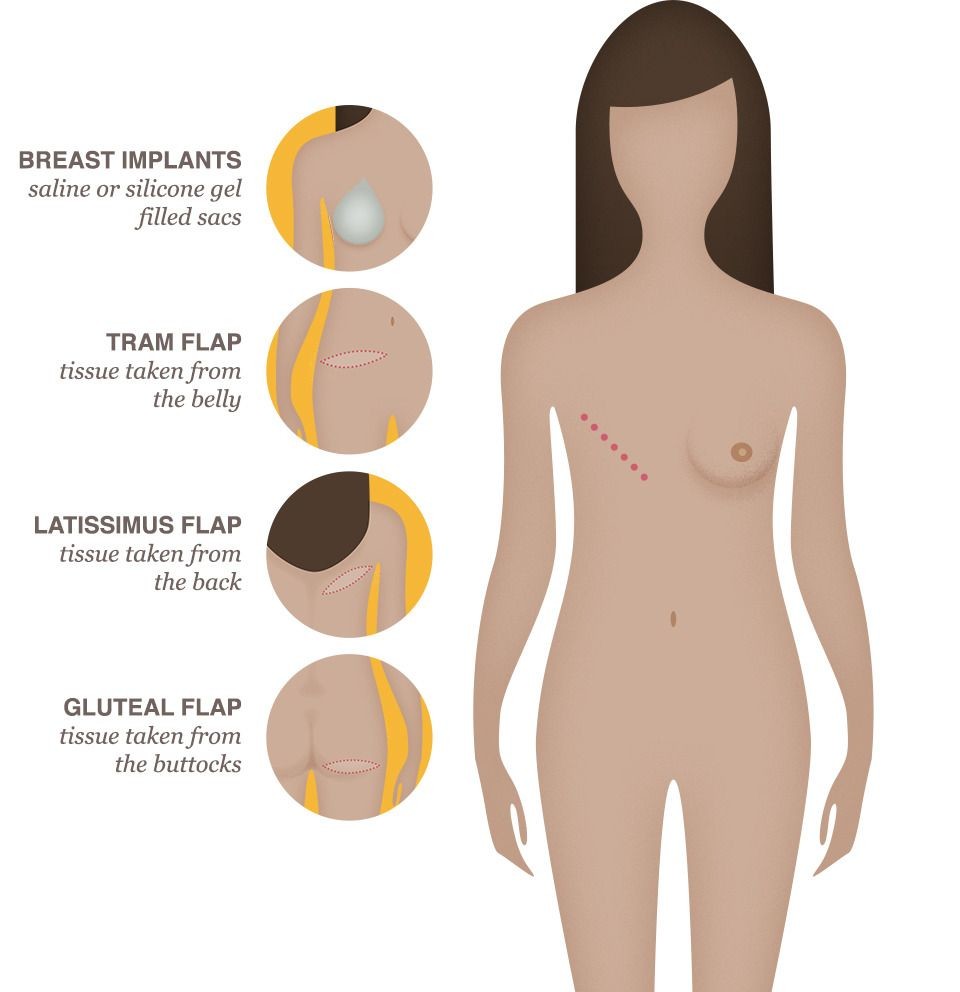
Breast reconstruction is a significant surgery undertaken to rejuvenate the physical form of a woman's chest after losing one or both breasts to cancer or another disease. In Morocco, medical centres are well-equipped with top-tier talent in plastic surgery to facilitate this intricate procedure. Every woman's journey is different, and her treatment plan is personalized, considering her unique circumstances and needs.
It's heartening to know that breast cancer treatments like chemotherapy or radiation therapy aren't impeded by reconstruction. Moreover, this surgery doesn't spike the risk of cancer coming back. Undeniably, breast reconstruction is a major surgery with inherent risks, including chances of infection, complications with wound healing, and potential dilemmas related to implants.
What is the cost of Breast Reconstruction in Morocco?
Undergoing surgery like Breast Reconstruction brings along a financial commitment. The expense varies extensively, depending on many factors like the complexity of the procedure, the medical professional performing the surgery, the hospital's facility, and the region, amongst others. Generally, the cost might range between $15,000 to $50,000, including multiple surgeries or intricate techniques within this estimate.
Thankfully, in many cases, insurance plans cover such surgical procedures, especially given mandates like the Women's Health and Cancer Rights Act of 1998 in the U.S. Still, out-of-pocket expenses associated with co-payment or deductibles can add up. It's recommended to navigate these aspects with your insurance provider and your chosen healthcare facility in Morocco.
What does a Breast Reconstruction Procedure Involve?
Breast reconstruction generally happens in stages, starting with the most complex first, which may either occur at the same time as the mastectomy or later, based on the individual’s specific health conditions or treatment plan.
Two main techniques are employed in breast reconstruction. One is the use of an implant, saline, or silicone to recreate the breast shape. Two, autologous or flap reconstruction where tissue from the patient’s body like the abdomen or thigh is relocated to recreate the breast shape. The method selected is dependent on individual factors like the patient’s health, personal choice, cancer type, and stage.
After the primary surgery and post an adequate healing period, the surgeon performs a second procedure to recreate the nipple and areola. Later, to give it a natural look, the nipple-areola complex is tattooed. Remember that although it is a common procedure, complications might arise involving reaction to anaesthesia, bleeding, infection, poor healing or the need for further interventions.
How Long Should I Stay in Morocco for a Breast Reconstruction Procedure?
Post-breast reconstruction surgery, patients typically stay in the hospital for two to five days. However, if the reconstruction was done immediately after the mastectomy, the stay could extend from three to six days.
Overall, a patient should expect to remain in Morocco for approximately two weeks post-surgery. This allows enough time for necessary follow-ups and to address any complications, if they arise. As with any major surgical procedure, do not hasten the healing process.
What's the Recovery Time for Breast Reconstruction Procedures in Morocco?
The recovery timeframe for breast reconstruction procedures in Morocco varies from patient to patient. Generally, for implant-based procedures, patients may take about four to six weeks to recuperate before they return to normal routines. For more complex autologous techniques, particularly those using abdominal tissue, patients might require six to eight weeks for recovery.
Recovering patients need to temper their activities during this period. Avoid lifting heavy objects and defer strenuous exercise until your physician gives a clear signal. Medical assistance should be promptly sought if any discomforting symptoms like chronic pain, redness or swelling surface.
What's the Success Rate of Breast Reconstruction Procedures in Morocco?
Medical success cannot just be measured in terms of complication-free postoperative progress or longevity of implants used in breast reconstruction. Patient satisfaction with their surgery, their psychological well-being following the operation, their perception of body image, and their quality of life post-surgery are equally important factors to consider. Studies indicate that between 85% to 90% of women who have undergone breast reconstruction are satisfied with the long-term results.
In Morocco, dedicated hospitals and healthcare facilities strive to offer high-quality treatment, ensuring the best possible surgical outcomes using progressive technology and experienced professionals. Still, everyone's response to surgery varies, and outcomes depend on factors such as overall health, age, body type, and compliance with surgical advice.
Are there Alternatives to Breast Reconstruction Procedures in Morocco?
Indeed, there are alternatives to breast reconstruction in Morocco. The journey of every woman is unique and how she chooses to deal with the loss of a breast, or both, is a highly personal decision. Alternatives include:
- Breast Prostheses or Forms: They are silicone forms that imitate the appearance and feel of natural breast tissue. They come in diverse sizes, shapes and colours to closely match the woman's skin tone.
- Flat Closure: In this method, the surgeons sew up the chest wound smoothly, without constructing a breast mound. This option appeals to women who choose not to have more surgeries or body implants.
- Opting not to undergo reconstruction at all, also termed as "going flat: This method exhibits the woman's choice to live comfortably with her new body shape without artificial substitutes or further surgeries. It is a fully personal decision deserving respect and support.
Each of these options has pros and cons, and the choice depends on the woman’s personal preference, health status, lifestyle, and perception of her body. Regardless of the choice, it’s important to regularly monitor breast health and engage in practices that promote overall wellness.
What Should You Expect Before and After the Breast Reconstruction Procedure?
Before the surgery, comprehensive discussions with the surgeon will take place to understand treatment objectives, outcomes, and possible complications. Preoperative tests, lifestyle modifications, and nutritional advice may form a part of the preparatory process.
Postoperative care is equally important: discomfort, swelling, and bruising are normal and subside over time. Pain management strategies will be provided to help you manage discomfort effectively. Your surgeon will provide personalised guidance on caring for your surgical site, usage of medications, and physical activities.
What sort of Aftercare is Required for Breast Reconstruction Procedures in Morocco?
The following points should be considered post-operation:
- Follow the instructions given by your doctor and take your medicines as and when prescribed.
- Consult a nutritionist for a diet plan. A healthy diet helps you recover faster.
- Do not wear a padded or underwire bra until allowed by your doctor.
- Use surgical bras in the early few days after the surgery.
- Avoid excessive unnecessary movement of your breasts.
- Do not lift heavy objects and children - it could stretch on your stitches.
- Change your bandage whenever it gets dirty. Germs can cause infection.
- Do not take a bath when the bandages are still intact. A wet bandage can also be the cause of infection.
- Abstain from sexual activity for at least 6 weeks.
- Take rest - give yourself time to recover.
How Do I Prevent Cancer from Recurring?
Preventing cancer recurrence largely revolves around a balanced, healthy lifestyle coupled with regular medical check-ups. Regular exercise, maintaining a healthy weight, and eating nutritiously can contribute to cancer prevention. Smoke cessation and limiting exposure to secondhand smoke are crucial for both prevention and postoperative recovery.
Regular breast self-examinations, as well as mammograms and follow-up visits, are critical for early detection of any recurrence. Stress management techniques like yoga, meditation, and spending time in nature can also play an essential role in overall health.
Your medical team in Morocco is there to support you, offering advice tailored to your individual health status and medical history. Remember, proactive health checks are key to maintaining overall health and preventing the recurrence of diseases like cancer.
What is the ideal time to have Breast Reconstruction surgery after a Mastectomy in Morocco?
The decision regarding when to have Breast Reconstruction following a Mastectomy in Morocco is largely based on the individual's health status, treatment plan, personal preferences, and discussions with the oncology team. Breast reconstruction can be done at the time of mastectomy (immediate reconstruction) or at a later date (delayed reconstruction). Immediate reconstruction might offer psychological benefits and less overall surgery since both procedures are done together. Yet, if additional treatments such as radiation therapy are required post-mastectomy, opting for delayed reconstruction could be advisable to avoid risks posed by radiation to the new construct.
Remember that deciding on the timing of breast reconstruction is a personal choice and should be made in consultation with your healthcare providers. They can provide specific guidance based on your health condition and treatment plan.
How Will Breast Reconstruction in Morocco Impact My Routine Mammograms and Breast Cancer Detection?
Breast reconstruction surgery may impact the way routine breast cancer screenings are conducted. After a mastectomy with or without reconstruction, women usually don't need routine screening mammograms on the treated side since all breast tissue has been removed. However, they would need routine mammograms for the untreated breasts.
If you've had reconstruction using your own body tissue, your surgeon or oncologist will guide you on whether or not you'll require mammograms on the reconstructed breast. Remember, mammograms can still be performed on reconstructed breasts, and self-breast exams should be a regular part of your health routine.
Whilst the information presented here has been accurately sourced and verified by a medical professional for its accuracy, it is still advised to consult with your doctor before pursuing a medical treatment at one of the listed medical providers
No Time?
Tell us what you're looking for and we'll reachout to the top clinics all at once
Enquire Now

Popular Procedures in Morocco
Prices Start From $497

Prices Start From $208

Prices Start From $834

Prices Start From $500

Prices Start From $93

Prices Start From $85

Recommended Medical Centers in Morocco for Breast Reconstruction

- Interpreter services
- Translation service
- Religious facilities
- Medical records transfer
- Medical travel insurance
- Health insurance coordination
- TV in the room
- Safe in the room
- Phone in the room
- Private rooms for patients available

- Interpreter services
- Translation service
- Religious facilities
- Medical records transfer
- Medical travel insurance
- Health insurance coordination
- TV in the room
- Safe in the room
- Phone in the room
- Private rooms for patients available

- Interpreter services
- Translation service
- Religious facilities
- Medical records transfer
- Medical travel insurance
- Health insurance coordination
- TV in the room
- Safe in the room
- Phone in the room
- Private rooms for patients available

- Interpreter services
- Translation service
- Religious facilities
- Medical records transfer
- Medical travel insurance
- Health insurance coordination
- TV in the room
- Safe in the room
- Phone in the room
- Private rooms for patients available

- Interpreter services
- Translation service
- Religious facilities
- Medical records transfer
- Medical travel insurance
- Health insurance coordination
- TV in the room
- Safe in the room
- Phone in the room
- Private rooms for patients available
Breast Reconstruction in and around Morocco
About Morocco
Morocco is a popular destination, attracting culture lovers, backpackers, adventure travelers, couples, families, foodies, and more to its four imperial cities: Marrakesh, Fes, Meknes, and Rabat. Rabat is the current capital city. Although a modern city at first glance, it has several interesting historical attractions, such as the Kasbah of the Oudaias, the old medina, and the Hassan Tower. The gleaming Royal Mausoleum is also well worth a visit. Known as the Red City, Marrakesh is famous for its old medina, numerous souks, ancient palaces like Badi Palace and Bahia Palace, the striking Koutoubia Mosque, the energetic Djemaa el-Fna, and the Saadian Tombs. The former capital of Fes boasts plenty of stunning architecture, though it is perhaps most known for its large tanneries and for being home to one of the oldest universities in the world. Meknes has one of the most impressive monumental gates in all of Morocco, Bab el-Mansour. Horse-drawn carriages are a great way to explore the charming and relaxed imperial city. Morocco has beaches along both the Mediterranean Sea and the Atlantic Ocean. Popular holiday spots with foreign visitors include Tangier and Agadir, while Asilah attracts mainly locals and Spanish visitors. The vast Sahara Desert is the world’s largest hot desert. There are several places in Morocco from where you can begin expeditions into the desert, and there are plenty of experienced operators offering trips to remember.
The country welcomes an ever-increasing number of medical tourists each year, many of which travel for Breast Reconstruction procedures. Medical Tourists travel from all across the globe, particularly from neighboring African countries with an inferior healthcare system. Casablanca and Marrakesh are the popular cities and they mostly cater to dentistry and plastic surgery requirements
Popular Parts of Morocco
Morocco, with a population of over 35 million people, is known to be magical and chaotic. The country is very diverse, from Saharan Dunes, High Atlas, ancient medinas, friendly locals to traditional life; Morocco has everything for every tourist.
- Marrakesh is also known as the red city because of its famous red walls, plazas, and alleys. It has a beautiful medina (old town) where tourists can wander around, be amazed by the historical city, and explore and shop in the souks. Visit Djamaa el-Fina and find street performers, musicians, and tattoo artists.
- Fez is considered as Morocco’s cultural and spiritual center. The city is filled with museums, mosques, palaces, and fountains. The most popular attraction is the medina, tourists can explore the tiny streets and find an array of street vendors. Remember to try the amazing local cuisine and stay away from wandering down empty streets.
- Tangier is located in northwestern Morocco on the Maghreb coast. It offers a breathtaking waterfront where you can see the Mediterranean Sea meets the Atlantic Ocean. The city is known to be Europe’s gateway to Africa. It has a fascinating cultural landscape as well as an inviting literary and artistic past.
- Casablanca is the biggest city and the least popular tourist’ destination in Morocco. But the city is actually full of hidden gems. From Art Deco architecture, beaches, markets, to history and culture, tourists will find many amazing things to see here.
- Rabat is often overlooked by tourists. It is the political and administrative capital of Morocco that offers plenty of charm. Tourists are free to roam around the Tower of Hassan, enjoy a day at the calm beach, or admire the big medina.
Weather and Climate in Morocco
Morocco’s climate is generally moderate and subtropical with cool breezes from the Atlantic and the Mediterranean Sea. Temperature varies greatly depending on region and altitude. Summer lasts from June to August and is often really hot. Winter comes in November and ends in January. It is the wettest and coldest season in the country. The best time to visit is in Spring and Autumn where the weather is warm and pleasant.
The coastal regions have nice weather throughout the year, the Winter has mild temperature and although the temperature will rise in the Summer, it’s not too hot. The High Atlas Mountains can be visited all year round but the winter can get really cold. There will be snow on the peaks during Winter. The summer can be a little too hot for any long-distance hike.
Getting Around in Morocco
Morocco’s main gateway is Casablanca's Mohammed V International Airport. The airport is located in Nouaceur Province and is the busiest airport in the country. It is the hub for Air Arabia Maroc, Royal Air Maroc. It serves domestic and international flights to and from many cities in the Middle East, Europe, and America. Major and budget airlines operate flights from this airport. Other important airports include Menara airport in Marrakesh, Fes–Saïss in Fez, Ibn Batouta International in Tangier.
There are several options for tourists to travel to downtown Casablanca. Buses are affordable, a single ticket costs 20.00 MAD. It will take around 45 minutes to get to the city center. There’s also a bus line that will take tourists to Rabat.
Casablanca Airport has an underground train station that connects to Mers Sultan, Casa Port, Casa-Voyageurs or L’Oasis. The total trip time to downtown Casablanca is 45 minutes. The trains operate from 06.00 am to 10.00 pm.
Taxis are the most convenient mean of transportation, but they’re also more expensive than trains and buses. The base fare is around 250.00 MAD to 300.00 MAD (25 to 30 USD). Always avoid non-authorized taxis because they are known to overcharge. Refuse to board a taxi with broken or turned off meters. Remember that Casablanca official taxis are painted in white.
The most efficient and affordable way to get around Morocco is by the intercity buses. The most popular operators are Supratours, CTM, SATAS, and Ghazala. A ride from Marrakesh to Casablanca is around 4 hours and should cost 90 MAD (9 USD).
Morocco’s national rail network is operated by ONCF and connects major cities like Marrakesh, Casablanca, Fez, and Rabat. The trains are usually on-time and comfortable. First-class tickets cost about 45 MAD (5 USD) per hour and the second class tickets cost around 30 MAD (3 USD).
Tourist Visas in Morocco
Citizens of Australia, New Zealand, Canada, the United States, the European Union, Britain, Japan, and South Africa do not need a visa to enter the country. Citizens of 66 countries can enter and stay in Morocco for up to 90 days. Citizens of the Republic of the Congo, Guinea, and Mali do not require a visa but must obtain an Electronic Travel Authorization in advance.
It is recommended to check the current regulations with the Moroccan Embassy or Consulate in your country. All visitors must hold a passport valid for over 6 months at the entry date.
Additional Information
- Local Currency: The official currency if Moroccan Dirham (MAD). The exchange rate from 1 USD is 9.70 MAD.
- Money & Payments: Tourists can find many ATMs spread around the country and they are the easiest way to access money. Credit cards are accepted in top-end hotels and restaurants. Always carry some cash with you. Many Moroccan riads will accept euros. Tipping can sometimes be mandatory. It is not necessary to tip taxi drivers, but it is polite to do so.
- Local Language: There are two official languages in Morocco; Modern Standard Arabic and Amazigh (Berber). French is widely understood and spoken in the country. Many people in the northern and southern parts of the country can speak Spanish. English is not widely spoken but some people in tourist and urban areas can speak English. Most street signs are written in Arabic and French.
- Local Culture and Religion: The majority of Morocco’s population follows Islam. Christianity, Judaism, and Baha’i Faith are freely practiced. The country has a conservative dress code. Avoid wearing revealing clothes regardless of the season.
- Public Holidays: Islam religious holidays are celebrated in Morocco. The country hosts several annual festivals such as Marathon des Sables, Kelaa-des-Mgouna Rose Festival, and Marrakesh Popular Arts Festival.
Popular Searches
- Plastic Surgery in Thailand
- Dental Implants in Thailand
- Hair Transplant in Thailand
- Breast Augmentation Thailand
- Gastric Sleeve in Thailand
- Gender Reassignment Surgery in Thailand
- Laser Hair Removal in Bangkok
- Botox in Bangkok
- Dermatology in Bangkok
- Breast Augmentation in Bangkok
- Coolsculpting in Bangkok
- Veneers in Turkey
- Hair Transplant in Turkey
- Rhinoplasty in Turkey
- Stem Cell Therapy in Mexico
- Rhinoplasty in Mexico
- Liposuction in Mexico
- Coolsculpting in Tijuana
- Rhinoplasty in Korea
- Scar Removal in Korea
- Gastric Sleeve in Turkey
- Bone Marrow Transplant in India
- Invisalign in Malaysia
- Plastic Surgery in the Dominican Republic
- Tummy Tuck in the Dominican Republic
- Plastic and Cosmetic Surgery in Poland
- Rhinoplasty in Poland
- Hair Implant in Poland
- Dental Implants in Poland
- IVF in Turkey

